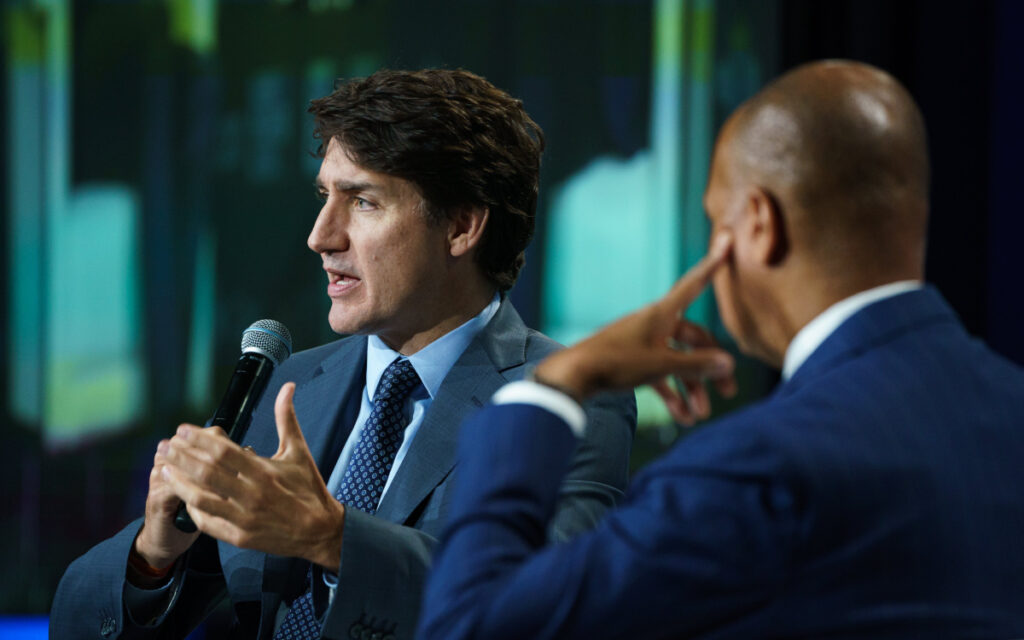
At some point soon, it will become untenable for Trudeau to maintain his hold on power. Pictured: Prime Minister Justin Trudeau. Photo Credit: Justin Trudeau/X.
Select members of the Liberal caucus have finally taken matters into their own hands and decided enough is enough when it comes to allowing the Prime Minister to control the decision of whether he will run in the next election.
From their vantage point, it seems as though it is no longer satisfactory to continue the downward slide in the polls and leave it up to Canadians to determine the outcome in the next election.
While Prime Minister Justin Trudeau and his chief of staff were across the world attending meetings in Laos, the Toronto Star reported last Friday that things were amiss in the Liberal caucus, with some MPs airing their grievances about their electoral prospects with Trudeau at the helm of the ship.
CTV News has since reported that a “verbal discussion” will take place behind closed doors next week, where an undisclosed number of MPs will ask Trudeau to step down. Notably, only a few MPs have raised their hand to identify themselves, and among the rabble rousers who have made public comments, they all hail from Atlantic Canada.
The problem here for Trudeau isn’t that his caucus is unhappy about the prospect of him leading the party into the next election. It’s that he must find a way to govern while holding off a full-fledged caucus revolt, which takes time, effort, and motivated staff to help change the channel.
Even if Trudeau can find a balance between his official duties as Prime Minister, and those of Leader of the Liberal Party, there is also the problem of preparing for the next election. With less than a year to go until the fixed election date, this is generally a period where staff begin the migration from political offices within government, over to party operations. The work then begins to prepare for the next election, including building out policy platforms and shoring up opposition research packages.
There is also the wildcard of next month’s US election. If former president Donald Trump finds his way back into the White House, a number of hot button issues like tariffs, cross-border immigration and the renegotiation of the Canada-United States-Mexico Agreement will be back in the spotlight.
Even if Vice President Kamala Harris pulls out a win in a couple weeks’ time, there is no guarantee that Canada will have an easy ride. Harris, too, has indicated that her administration will take a protectionist stance on trade and retain existing tariffs in place.
At some point soon, it will become untenable for Trudeau to maintain his hold on power. The slow-rolling caucus revolt may be a nail in the coffin, but it’s unlikely to deliver the immediate results that would force a Liberal leadership.
What will get Trudeau in the end is the inability to govern effectively, at a time when the country needs strong and decisive leadership. Unfortunately for the broader caucus who do choose to put their name forward for re-election, many of the resources that should be dedicated to running an effective national campaign will be tied up keeping Trudeau afloat.

Josie Sabatino is a Senior Consultant at Summa Strategies, focused on providing strategic insight and helping clients meet their objectives in an ever changing and complex political and regulatory environment. Prior to joining Summa, Josie spent nearly a decade in political communications and most recently served as the Director of Communications to the Hon. Erin O’Toole, former Leader of the Official Opposition.






